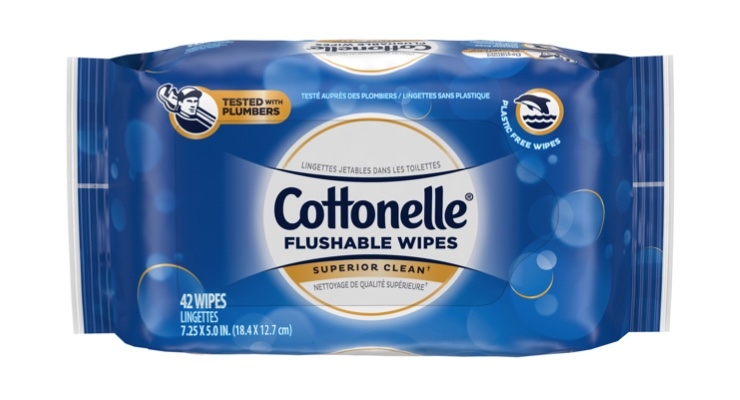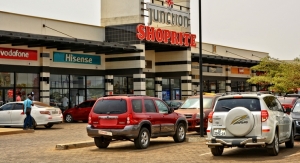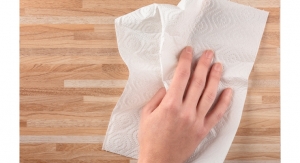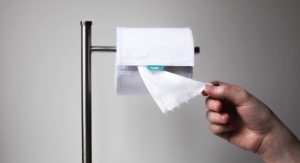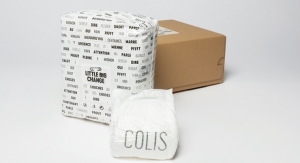06.04.19
With more than 3900 miles of wastewater collection lines and 11 treatment plants, the JEA wastewater team is familiar with the challenges posed by the improper flushing of items not designed or marketed as flushable – mostly baby wipes, but also cosmetic wipes, surface-cleaning wipes, paper towels and feminine hygiene products.
But it's what JEA, one of the largest water and sewer utilities in the nation, didn't find – flushable wipes manufactured by Kimberly-Clark – that has the utility taking a different approach to the issue.
"It's clear from the results of this collection study that our customers want a wet wipe solution in the bathroom; however, it's important that our customers stop flushing baby wipes and other wipes that aren't designed to break down in our system," says Deryle Calhoun, vice president and general manager for JEA's Water and Wastewater Systems. "So, we want our customers to know that if they're going to use a wipe in the bathroom, we really need them to use a wipe that is truly safe for flushing."
Together Kimberly-Clark and JEA are launching a new campaign intended to remind residents of what not to flush, and importantly, that flushable wipes – specifically Cottonelle flushable wipes – are a solution to the problems related to non-flushable wipes in their sewers.
"After looking at the performance of Cottonelle flushable wipes in the lab and in our sewers, we know that the wipe does what it says it does – it breaks down after flushing, contains no plastic fibers, and it is compatible with our system," adds Calhoun. "That's why we are able to confidently support this product with our customers in this campaign."
The recent collection study of trash found in Jacksonville's sewers confirmed that the wipes accumulating in the system are baby wipes, cosmetic wipes, household wipes and other wet wipes not designed to be flushed. The study, available on the JEA website, reflects similar data from other large forensic collection studies in New York and the U.K. that flushing these non-flushable products are the cause of problems in municipal systems.
"The Cottonelle team is excited to be working with one of America's leading waste and wastewater utilities to make a real difference. We've felt passionately for years that Cottonelle flushable wipes are a key part of the solution to the issues facing wastewater operators," says Ashley Abrahamson, Kimberly-Clark brand manager for Cottonelle. "The conversation about 'wet wipes' and flushable wipes has confused consumers and contributed to flushing wipes that aren't safe for sewers. Working with JEA, we can help their customers choose the right solution for wipes in the bathroom and keep baby wipes out of the sewers."
Cottonelle flushable wipes use a patented technology that causes the wipes to begin breaking down immediately after flushing. They're tested with plumbers, and proven to clear properly maintained toilets, drain lines, sewers, and pumps.
But it's what JEA, one of the largest water and sewer utilities in the nation, didn't find – flushable wipes manufactured by Kimberly-Clark – that has the utility taking a different approach to the issue.
"It's clear from the results of this collection study that our customers want a wet wipe solution in the bathroom; however, it's important that our customers stop flushing baby wipes and other wipes that aren't designed to break down in our system," says Deryle Calhoun, vice president and general manager for JEA's Water and Wastewater Systems. "So, we want our customers to know that if they're going to use a wipe in the bathroom, we really need them to use a wipe that is truly safe for flushing."
Together Kimberly-Clark and JEA are launching a new campaign intended to remind residents of what not to flush, and importantly, that flushable wipes – specifically Cottonelle flushable wipes – are a solution to the problems related to non-flushable wipes in their sewers.
"After looking at the performance of Cottonelle flushable wipes in the lab and in our sewers, we know that the wipe does what it says it does – it breaks down after flushing, contains no plastic fibers, and it is compatible with our system," adds Calhoun. "That's why we are able to confidently support this product with our customers in this campaign."
The recent collection study of trash found in Jacksonville's sewers confirmed that the wipes accumulating in the system are baby wipes, cosmetic wipes, household wipes and other wet wipes not designed to be flushed. The study, available on the JEA website, reflects similar data from other large forensic collection studies in New York and the U.K. that flushing these non-flushable products are the cause of problems in municipal systems.
"The Cottonelle team is excited to be working with one of America's leading waste and wastewater utilities to make a real difference. We've felt passionately for years that Cottonelle flushable wipes are a key part of the solution to the issues facing wastewater operators," says Ashley Abrahamson, Kimberly-Clark brand manager for Cottonelle. "The conversation about 'wet wipes' and flushable wipes has confused consumers and contributed to flushing wipes that aren't safe for sewers. Working with JEA, we can help their customers choose the right solution for wipes in the bathroom and keep baby wipes out of the sewers."
Cottonelle flushable wipes use a patented technology that causes the wipes to begin breaking down immediately after flushing. They're tested with plumbers, and proven to clear properly maintained toilets, drain lines, sewers, and pumps.

